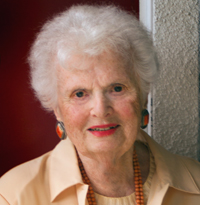By Natasha Josefowitz, ACSW, Ph.D.

LA JOLLA, California — There are many types of prejudice, but they can broadly be placed into two categories: personal and institutional. Personal prejudice is not based on reason, nor on actual experience. It is a feeling rooted in suspicion, fear, and intolerance. It is a negative attitude and adverse judgement without knowledge about race, gender, nationality, religious affiliation, or sexual orientation. It may be conscious or unconscious. We all have strong opinions and long-held beliefs that we cling to, even when faced with contradictory facts. Our brains are threatened by the unknown. It is only through exposure to others that people can drop their shield.
Institutional prejudice (such as Apartheid in South Africa, the Holocaust in Germany, the Japanese internment in the United States during World War II) are examples of national prejudice. Universities use quotas for admission; last century it was of Jews, currently it is quotas of Japanese students. Admissions are discriminatory against specific populations showing a preference for a majority of white students versus minorities.
The inability of people of color to buy houses or move into apartments in certain affluent white neighborhoods is based on the fear of potential lowered real estate prices. All these are conscious decisions. In the workplace, the lack of people of color and women both in hiring and promotions are grounded on assuming the lesser qualifications of these populations. Prejudice is based on ignorance and the lack of contact with these populations. We tend to hire people we are most comfortable with—namely people most like ourselves. I call it the “clonal effect” as we are cloning ourselves in the workplace.
When prejudice is acted upon, it becomes discrimination, which negatively affects the victims of such discrimination. It all starts with identifying someone as “other.” There is a feeling of discomfort, which can lead to suspicion, then imagined threat leading to fear. In order to protect oneself, the fear can escalate to violence.
Many of us are judgmental. One defense mechanism is to protect oneself from being judged from negative evaluations to keep others at bay.
Prejudice also includes the inability to tolerate ambiguity. If we cannot fit people into neat little boxes, we dismiss them as not belonging to our group. Perfectionists deal with social anxiety by putting others down in order to raise their own self-esteem; condemning others can boost one’s ego.
We are currently living in a time of uncertainty, having recently experienced challenging years due to the COVID‑19 pandemic. We are being constantly warned about worsening climate change, which is widespread through droughts, floods, extreme heat, hurricanes, rising sea levels, and melting ice caps. We are advised of a coming severe flu epidemic and new variants of the coronavirus. In times like these, feelings of anxiety turn into feelings of hopelessness. Some find solace in conspiracy theories leading to lash out at the most vulnerable people.
Discrimination prevents those vulnerable populations from access to better education, health care, housing, safer neighborhoods, decent nutrition, opportunities to work at well-paying jobs, creating and reinforcing vicious cycles of poverty. We are in a cycle of increased inequality and increased discontent. Social media is fueling more and more violence with inflammatory rhetoric reaching millions of people, exacerbating feelings of rage as people look to blame someone, anyone. Anger is also turned against people in authority. The people in charge of content in the media, as well as advertisers, know that anything posted that includes hate or violence attracts far more readers than less inflammatory news items! Greed wins at the cost of human suffering. Humanity is suffering today from a lack of tolerance, compassion, and affiliation.
There needs to be a concerted effort to create diverse groups where people can be exposed to cultures, viewpoints, religions, and opinions that are different from their own. Universities could cultivate cross-cultural forums and discussions, as could churches. It is only through exposure to people different from ourselves that we can shed our prejudices. I have led multi-cultural groups and have seen the change in people’s perceptions of each other, becoming more accepting and inclusive. Summer camps with Israeli and Arab children begin with suspicion and finish with friendship between these groups. These encounters change perceptions and lives for the better. In the meantime, each of us as individuals should take every opportunity to make contact with persons different from ourselves and get to know them through our shared humanity.
*
© Natasha Josefowitz. This article appeared initially in the La Jolla Village News. You may comment to natasha.josefowitz@sdjewishworld.com